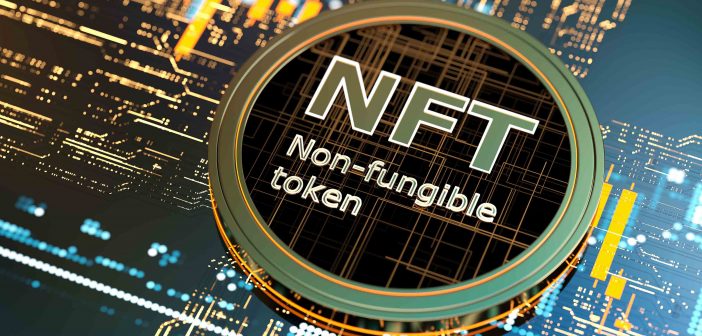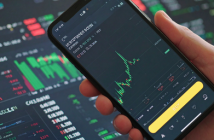The world of NFTs (Non-Fungible Tokens) has exploded in recent years, capturing the imagination of collectors and investors alike. India, a nation known for its tech-savvy population, is also witnessing a surge in NFT interest. But for Indian investors, navigating this new asset class can be tricky. This guide explores the intricacies of the Indian NFT market, delving into the whys and hows of investing, along with the potential advantages and disadvantages to consider.
Understanding NFTs: Owning the Digital
At its core, an NFT represents ownership of a digital asset on a blockchain – a secure, distributed ledger. This digital asset can be anything – artwork, music, video game items, even tweets! Unlike fungible tokens like Bitcoin (where one unit is identical to another), each NFT is unique and irreplaceable. This uniqueness grants the owner a verifiable claim on the digital asset, along with potential future value appreciation.
Why Consider NFTs in India?
The Indian NFT market is brimming with potential. Here’s why Indian investors might consider dipping their toes:
-
Supporting a Thriving Art Scene: India boasts a rich artistic heritage. NFTs empower artists to showcase and monetize their work directly, fostering a vibrant creator economy. By investing in Indian NFT art, you not only support local talent but potentially acquire valuable digital collectibles.
-
Investing in the Metaverse: The metaverse, a proposed network of interconnected virtual worlds, is gaining traction. NFTs are expected to play a crucial role in metaverse ownership and transactions. Early investment in metaverse-related NFTs could prove lucrative in the long run.
-
Community Building and Access: Many NFT projects come with exclusive communities and access to perks like events or merchandise. This fosters a sense of belonging and potential networking opportunities for Indian investors.
Before You Dive In: Weighing the Advantages and Disadvantages
Like any investment, NFTs come with their own set of pros and cons:
Advantages:
-
High-Risk, High-Reward: NFTs offer the potential for significant returns, especially for early investors in promising projects.
-
Fractional Ownership: Some NFTs can be divided into smaller units, allowing for investment with lower capital.
-
Transparency and Security: Blockchain technology ensures transparency in ownership and reduces the risk of fraud.
Disadvantages:
-
Volatility: The NFT market is still young and highly volatile. Prices can fluctuate significantly, leading to potential losses.
-
Technical Challenges: Setting up a crypto wallet and navigating NFT marketplaces can be a challenge for non-technical users.
-
Regulation Uncertainty: Regulations surrounding NFTs in India are still evolving, which can pose challenges for investors.
When to Invest: Timing is Key
There’s no magic formula for perfect NFT investment timing. However, some factors can help you make informed decisions:
-
Project Team and Utility: Research the team behind the NFT project and the utility offered by the NFT itself. Look for established creators with a clear roadmap and NFTs with real-world use cases.
-
Community Hype: A strong and engaged community can contribute to an NFT’s value. Gauge community sentiment on social media platforms like Discord or Telegram.
-
Market Trends: Stay updated on emerging trends in the NFT space. Look for projects that align with current market interests like metaverse integration or utility-driven NFTs.
Investing in NFTs: A Step-by-Step Guide
Ready to take the plunge? Here’s a basic roadmap for Indian investors:
-
Educate Yourself: Familiarize yourself with blockchain technology, cryptocurrency wallets, and the NFT ecosystem.
-
Choose a Marketplace: Popular NFT marketplaces like OpenSea or Rarible cater to a global audience. Explore platforms that cater specifically to the Indian market.
-
Set Up a Crypto Wallet: You’ll need a crypto wallet to store the cryptocurrency used to purchase NFTs (often Ethereum). Choose a reputable wallet with strong security features.
-
Fund Your Wallet: Transfer funds from your bank account to your crypto wallet using a crypto exchange.
-
Connect Your Wallet: Link your crypto wallet to your chosen NFT marketplace.
-
Browse and Research: Explore NFT projects on the marketplace, considering the factors mentioned earlier.
-
Invest Wisely: Start small and diversify your NFT portfolio to mitigate risk. Remember, NFTs are a speculative investment.
The Future of NFTs in India
The Indian NFT market is in its nascent stages, but its potential is undeniable. As regulations evolve and infrastructure strengthens, NFT adoption is likely to rise. With careful research, strategic investment, and a healthy dose of caution, Indian investors can navigate this exciting new frontier and potentially reap the rewards. However, always remember, the NFT market is inherently volatile, and there’s no guarantee of success. Invest responsibly and never invest more than you can afford to lose.






